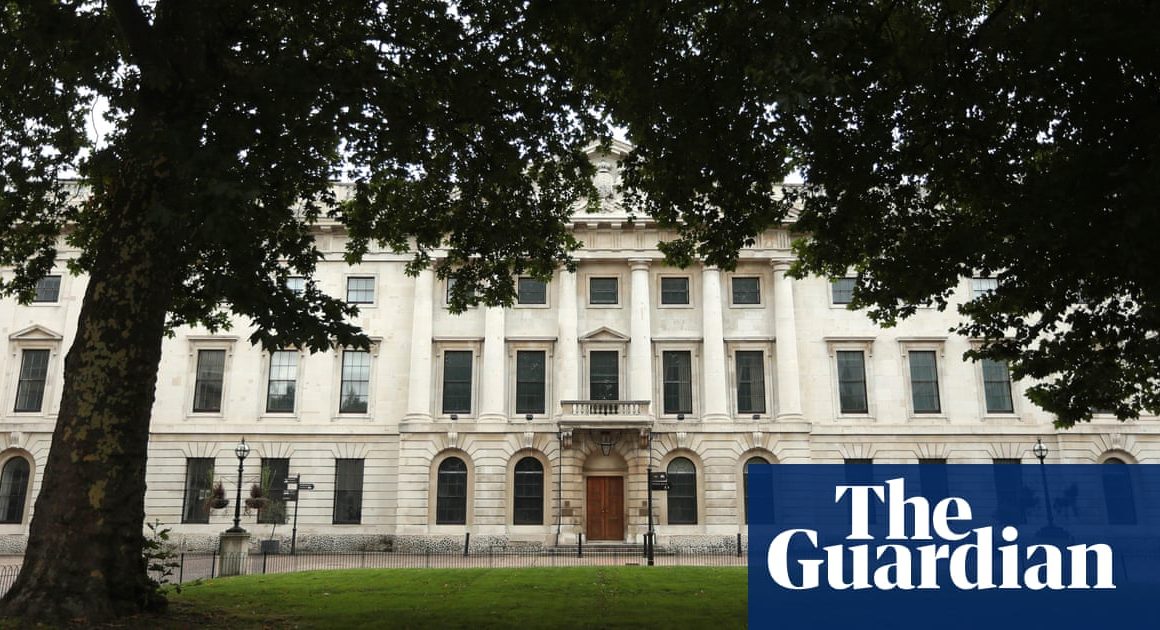Morning opening: The Trump effect

Jakub Krupa
Greenlanders could soon vote in a referendum on independence from Denmark under plans proposed by the ruling party, Siumut.
You never expected to be this invested in the domestic politics of Greenland, right? Me neither. But that’s the Trump effect. We better get used to it.

Earlier this week, the Greenlandic parliament called a snap election for 11 March, partially in response to growing rhetoric about US aspirations to control the area by US president Donald Trump (very much against their will).
Last night, the leader of the ruling party there said that if they get re-elected, they will accelerate the independence process by triggering Section 21 of the Greenland Self-Government Act to negotiate the terms of a future relationship and, crucially, hold an independence referendum within the next parliament.
Party leader Erik Jensen admitted in media interviews that Trump’s intervention indirectly contributed to this decision, and Siumut’s political spokesperson Doris Jakobsen Jensen went further and criticised the Danish prime minister, Mette Frederiksen for her “solo run” in Europe in response to Trump’s words, allegedly ignoring Greenland’s will.
However, there will be plenty of practical questions about how any future arrangement would look, which will probably complicate the process. For example, under the current arrangement, Denmark pays the territory a 4.3 billion kroner (£484m or €580m) grant.
A recent poll for Berlingske and Greenlandic newspaper Sermitsiaq showed that most Greenlanders expect this to continue even after independence. But would Denmark agree? Her office declined to comment “out of respect for the electoral process.” If that money is not there, will Greenlanders still want independence now? Are they ready, or need more time?
(If you are getting Brexit flashbacks reading this introduction, I can’t even blame you. At least they don’t put it on the side of a bus, yet.)
However, the Trump effect also exists in Denmark.
Danish daily Berlingske is reporting this morning about speculations that Frederiksen – whose Social Democrats gained over 3 points in polls since Trump came into office on the back of her diplomatic offensive – could also be tempted to call a snap election, bringing them forward from late 2026 to bank another term amid the swirling uncertainty about life under Trump.
I think we can confidently say that this theme of how Trump’s politics influences – or, depending on your politics, interferes with – domestic decisions will continue throughout 2025: from elections in Germany, where his close aide Elon Musk directly supports the far-right Alternative für Deutschland, through presidential elections in the likes of Romania and Poland, and beyond.
“May you live in interesting times,” eh?

It’s Friday, 7 February 2025, and this is Europe live. It’s Jakub Krupa here.
Good morning.
Key events
EU ‘regrets’ Trump’s decision to sanction the International Criminal Court

Jennifer Rankin
Here is the EU’s reaction, via our Brussels correspondent Jennifer Rankin:
A commission spokesperson said:
The EU expresses its regret regarding the US decision to impose sanctions on the International Criminal Court.
The International Criminal Court is of key importance in upholding international criminal justice and the fight against impunity. The EU is supporting the International Criminal Court and the principles set out in the Rome Statute.
The executive order represents a serious challenge to the work of the ICC with the risks of affecting ongoing investigations and proceedings, including as regards Ukraine, impacting years of efforts to ensure accountability around the world.
The EU will be monitoring the implications of the executive order and will assess possible further steps.
And the International Criminal Court itself said this in a separate statement:
The ICC condemns the issuance by the US of an Executive Order seeking to impose sanctions on its officials and harm its independent and impartial judicial work.
The Court stands firmly by its personnel and pledges to continue providing justice and hope to millions of innocent victims of atrocities across the world, in all Situations before it.
We call on our 125 States Parties, civil society and all nations of the world to stand united for justice and fundamental human rights.
Speaking of Donald Trump, he has signed an executive order overnight that authorises aggressive economic sanctions against the international criminal court (ICC), accusing the body of “illegitimate and baseless actions” targeting the US and Israel.
The order grants the US president broad powers to impose asset freezes and travel bans against ICC staff and their family members if the US determines that they are involved in efforts to investigate or prosecute citizens of the US and certain allies.
You can follow live reactions on our US blog here:
Morning opening: The Trump effect

Jakub Krupa
Greenlanders could soon vote in a referendum on independence from Denmark under plans proposed by the ruling party, Siumut.
You never expected to be this invested in the domestic politics of Greenland, right? Me neither. But that’s the Trump effect. We better get used to it.
Earlier this week, the Greenlandic parliament called a snap election for 11 March, partially in response to growing rhetoric about US aspirations to control the area by US president Donald Trump (very much against their will).
Last night, the leader of the ruling party there said that if they get re-elected, they will accelerate the independence process by triggering Section 21 of the Greenland Self-Government Act to negotiate the terms of a future relationship and, crucially, hold an independence referendum within the next parliament.
Party leader Erik Jensen admitted in media interviews that Trump’s intervention indirectly contributed to this decision, and Siumut’s political spokesperson Doris Jakobsen Jensen went further and criticised the Danish prime minister, Mette Frederiksen for her “solo run” in Europe in response to Trump’s words, allegedly ignoring Greenland’s will.
However, there will be plenty of practical questions about how any future arrangement would look, which will probably complicate the process. For example, under the current arrangement, Denmark pays the territory a 4.3 billion kroner (£484m or €580m) grant.
A recent poll for Berlingske and Greenlandic newspaper Sermitsiaq showed that most Greenlanders expect this to continue even after independence. But would Denmark agree? Her office declined to comment “out of respect for the electoral process.” If that money is not there, will Greenlanders still want independence now? Are they ready, or need more time?
(If you are getting Brexit flashbacks reading this introduction, I can’t even blame you. At least they don’t put it on the side of a bus, yet.)
However, the Trump effect also exists in Denmark.
Danish daily Berlingske is reporting this morning about speculations that Frederiksen – whose Social Democrats gained over 3 points in polls since Trump came into office on the back of her diplomatic offensive – could also be tempted to call a snap election, bringing them forward from late 2026 to bank another term amid the swirling uncertainty about life under Trump.
I think we can confidently say that this theme of how Trump’s politics influences – or, depending on your politics, interferes with – domestic decisions will continue throughout 2025: from elections in Germany, where his close aide Elon Musk directly supports the far-right Alternative für Deutschland, through presidential elections in the likes of Romania and Poland, and beyond.
“May you live in interesting times,” eh?
It’s Friday, 7 February 2025, and this is Europe live. It’s Jakub Krupa here.
Good morning.











